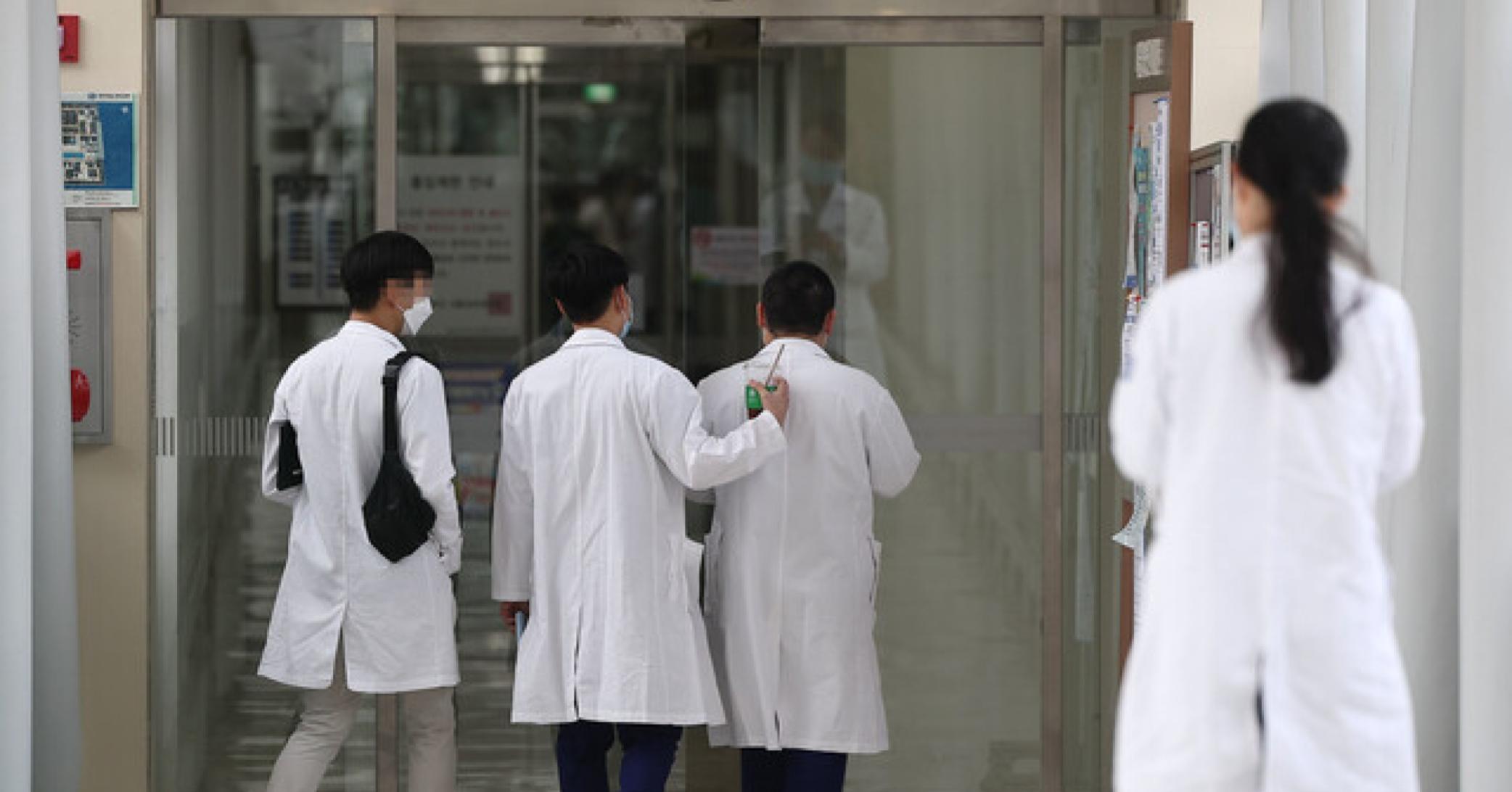As of Feb. 21, 9,275 trainee doctors have left their posts in South Korea to protest a government proposal to increase the intake of medical school students, The Korea Times reported, citing Second Vice Health Minister Park Min Soo.
These numbers are expected to rise, given the rampant dissatisfaction with the government's plan to increase the annual admission quota at medical schools by 2,000 from the current 3,058 starting in 2025.
The decision was announced on Feb. 6 by Health Minister Cho Kyu Hong despite strong opposition from doctors.
Since the announcement, doctors across the nation have gone on strike or resigned from their posts to protest the government's plan.
Why the increase in medical school quota?
According to President Yoon Suk Yeol, South Korea would require 15,000 additional doctors by 2035 to meet increasing demand from the growing ageing population and other factors, Yonhap reported.
With a ratio of 2.6 doctors per 1,000 people, South Korea's doctor-to-patient ratio is among the lowest in the developed world, according to the latest statistics by the Organisation of Economic Cooperation and Development (OECD) countries.
The number of medical students intake each year has not changed since 1998, according to Yonhap.
Should the government's plan proceed, the country will have 10,000 more doctors in 2035, Health Minister Cho said.
Cho also said that the plan will address the country's shortages of physicians in chronic fields such as paediatrics and emergency care.
It will also improve access to medical services across the nation, especially in rural areas.
Why the protest?
Doctors claimed that they were not properly consulted about the plan, according to Yonhap.
The policy was also introduced despite strong opposition from doctors, reported The Korea Times.
Doctors also asserted that expanding medical school enrollment will diminish the quality of medical education and services.
They claimed that opening public hospitals and offering better remuneration and wages would be more effective than increasing the number of medical school intakes, Yonhap reported.
In response to the government's announcement, doctors' organisation Korea Medical Association (KMA) warned that it would launch a nationwide strike starting from Feb. 12, straight after the Lunar New Year holiday.
What happened since the announcement?
Second Vice Health Minister Park Min Soo said that as of Wednesday (Feb. 21) night, 74.4 per cent of all junior doctors have submitted their resignations while 8,024 of 9,275 trainee doctors who resigned have also left their worksites.
There are about 13,000 junior doctors in South Korea, Yonhap reported.
Major general hospitals across the nation are struggling to attend to patients as more junior doctors leave their posts, according to The Korea Times.
Surgeries have also been cancelled, and some patients were forced to transfer to other hospitals.
To manage potential disruption to healthcare services, the government has extended operating hours at 97 public hospitals and opened the emergency rooms at 12 military hospitals for public use.
No sign of backing down
Commenting on the situation, Second Vice Health Minister Park told reporters on Feb. 21 that he was "disappointed and concerned over the idea of doctors' groups believing that doctors' rights come before patients lives".
He asserted that the trainee doctors' rights to take collective actions cannot precede the peoples' basic right to life.
Park said that the government has ordered about 6,000 junior doctors to return to work and threatened to prosecute those who do not comply.
Despite the order, however, junior doctors show no sign of backing down.
The Korea Intern Resident Association (KIRA), a major organisation of trainee doctors, in a statement demanded the government to recall their plan to increase the annual intake of medical students, calling the plan "ridiculous".
The association also accused the government of treating junior doctors as criminals by "overusing extrajudicial executive orders".
Legislative election on Apr. 10
South Korea will be holding its legislative elections on Apr. 10— a key election which will decide the fate of Yoon's administration, Nikkei reported.
Since taking office in 2022, Yoon has not been able to pass legislation easily as the opposition Democratic Party of Korea holds a majority in the National Assembly with 163 out of 297 seats.
Yoon's People Power Party, which holds 113 seats, would need to gain more seats in the upcoming elections should he hope to accomplish more for the remainder of his five-year term.
Yoon's approval rating has stagnated at around 35 per cent throughout his tenure, and he lacks a signature political achievement to attract voters.
It is unclear how the protest will affect Yoon's approval rating or the election.
KIRA in a statement accused the plan to increase the intake of medical school doctors a political ploy ahead of the country's legislative election, Reuters reported.
"We couldn't just sit back and watch medical policies built only for the sake of winning the general election," the organisation said in the statement.
Top image via.

If you like what you read, follow us on Facebook, Instagram, Twitter and Telegram to get the latest updates.



